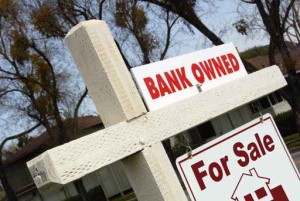Klauer Law Resources
REAL ESTATE LIENS
 With the state of the real estate market in Arizona, it is essential that you check the background for liens on of any piece of property you are considering for purchase. This is especially true for any property in the foreclosure process, offered at a trustee, sheriff, or short sale.
With the state of the real estate market in Arizona, it is essential that you check the background for liens on of any piece of property you are considering for purchase. This is especially true for any property in the foreclosure process, offered at a trustee, sheriff, or short sale.
That dream home may be saddled with a nightmare of encumbrances and judgments that you may be on the hook for if you purchase it. Liens on real property can take the form of mortgages, unpaid property taxes, Hoa dues owed, mechanics liens by unpaid contractors or even unpaid sewer bills. You should always be diligent and perform your own search even if your realtor may tell you that they have performed an adequate title or lien search.
To get an idea of what liens are outstanding on a piece of property, it is essential to contact the recorder’s office in the county in which the property is located. Before you begin your search, make sure you have the correct address, current owner’s name and parcel number. Many county recorder’s offices have online features that let you search for liens. If you are in a smaller county or one without an internet search option you will have to visit the recorder’s office in person to request a search. Either way, the search will give you access to documentation and contact information for the current lien holders. Then cross check your results with that of those of your realtor and title company.
You will then want to contact each lien holder to verify the type of lien and the amount outstanding. To be extra safe you can purchase title insurance which will cover any liens not recorded with the recorder’s office.
WHICH IS BEST: SHORT SALE OR FORECLOSURE?

With the state of the real estate market in Arizona, it is essential that you check the background for liens on of any piece of property you are considering for purchase. This is especially true for any property in the foreclosure process, offered at a trustee, sheriff, or short sale.
That dream home may be saddled with a nightmare of encumbrances and judgments that you may be on the hook for if you purchase it. Liens on real property can take the form of mortgages, unpaid property taxes, Hoa dues owed, mechanics liens by unpaid contractors or even unpaid sewer bills. You should always be diligent and perform your own search even if your realtor may tell you that they have performed an adequate title or lien search.
To get an idea of what liens are outstanding on a piece of property, it is essential to contact the recorder’s office in the county in which the property is located. Before you begin your search, make sure you have the correct address, current owner’s name and parcel number. Many county recorder’s offices have online features that let you search for liens. If you are in a smaller county or one without an internet search option you will have to visit the recorder’s office in person to request a search. Either way, the search will give you access to documentation and contact information for the current lien holders. Then cross check your results with that of those of your realtor and title company.
You will then want to contact each lien holder to verify the type of lien and the amount outstanding. To be extra safe you can purchase title insurance which will cover any liens not recorded with the recorder’s office.
The story on the morning news tells about how lenders are preferring to let home owners do short sales rather than doing foreclosures. This is very interesting since the on Arizona residential properties cannot go after a deficiency judgment if they complete a foreclosure. (A.R.S. § 33-729, § 33-814 and § 12-1566).
If the lender agrees to a short sale, beware of the lender who will not give the borrower a letter that specifically states that the promissory note is cancelled, void, or considered of no further force or effect. My concern is that lenders hold the promissory note after the short sale. They can sell that promissory note to investors for a few cents on the dollar. The buyer of the promissory note can sue to collect the deficiency (the unpaid balance on the note) for as long as six years after the promissory note goes into default.
So if you are a borrower, ask your lender for a written assurance that the promissory note is cancelled, void, or of no further force of effect. Unfortunately, most lenders are refusing to give that assurance in writing. Their refusal to do so leads me to the conclusion that they are planning to sell the promissory note to an investor who would then hold the note for a period of time, and then sue the borrower for the unpaid balance.
So why risk being sued for up to six years after selling a home in a short sale? Unless the lender releases the borrower from the promissory note, a foreclosure is the better choice because it prevents a deficiency from ever becoming a money judgment against the borrower.
–The Underwater Homeowner by Professor Brent White, University of Arizona College of Law
United States Tel: (602) 230-1393 Fax: (602) 230-1273